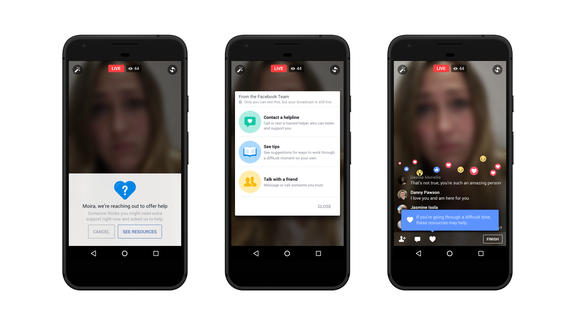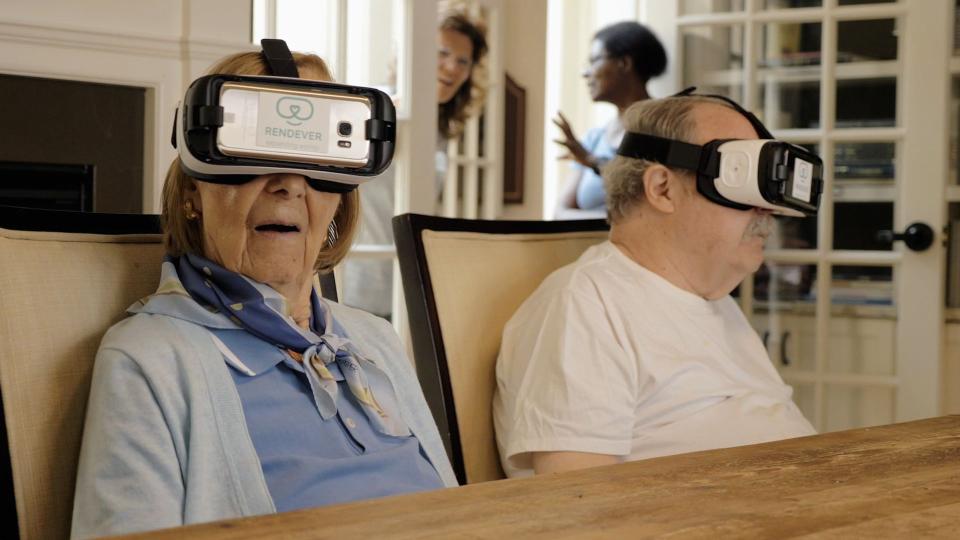Facebook's suicide prevention AI just got an important upgrade

Facebook's suicide prevention AI just took an important step forward.
The tech, which uses pattern recognition to determine when some may be expressing thoughts of suicide or self harm, is now able to reach people before a friend alerts anyone that they need help.
SEE ALSO: AI figured out the word people text when their suicide risk is high
Facebook first introduced its AI-based suicide prevention tools earlier this year. But until now, those tools still required a user, or one of their friends, to seek help. Now the social network says the tech has advanced to the point that it can proactively intervene when it detects that someone may be at risk of self harm or suicide — even if no one else has made a report.
Now, when the system identifies a post or Facebook Live broadcast "likely to include thoughts of suicide," those posts can be routed to Facebook's specially-trained reviewers who, in turn, can contact first responders.
"The whole point of this is that our proactive detection can kick in even before something has been reported," says Facebook VP of Product Management Guy Rosen.

Image: facebook
That's a big change from Facebook's prior tools, which still relied on a user, or one of their friends, to seek help. Eliminating this step not only means the company can identify cases that may have previously fallen through the cracks, but that they can reach people who need help much faster than before.
Rosen says that early testing of the system is already promising, with Facebook's proactive detection tools resulting in more than 100 wellness checks — cases where Facebook alerted local first responders — in the last month alone.
Now, these tools will also be available outside of the U.S. for the first time — Facebook is expanding them globally (except for countries in the E.U.).
Proactive detection isn't the only way Facebook says it's now using AI for suicide prevention. The company is also using AI to identify which reports are the most serious and need attention first.
The tools represent a big step forward not just in Facebook's quest to use AI to help reach people at risk of self harm or suicide, but Mark Zuckerberg's vision to make his social network more of a community. It's also a powerful example of how Facebook's AI can serve as a force for good at a time when many people are increasingly distrustful of the company.
WATCH: One senior living facility is using VR to help its residents revisit their favorite places


 Yahoo Finance
Yahoo Finance 